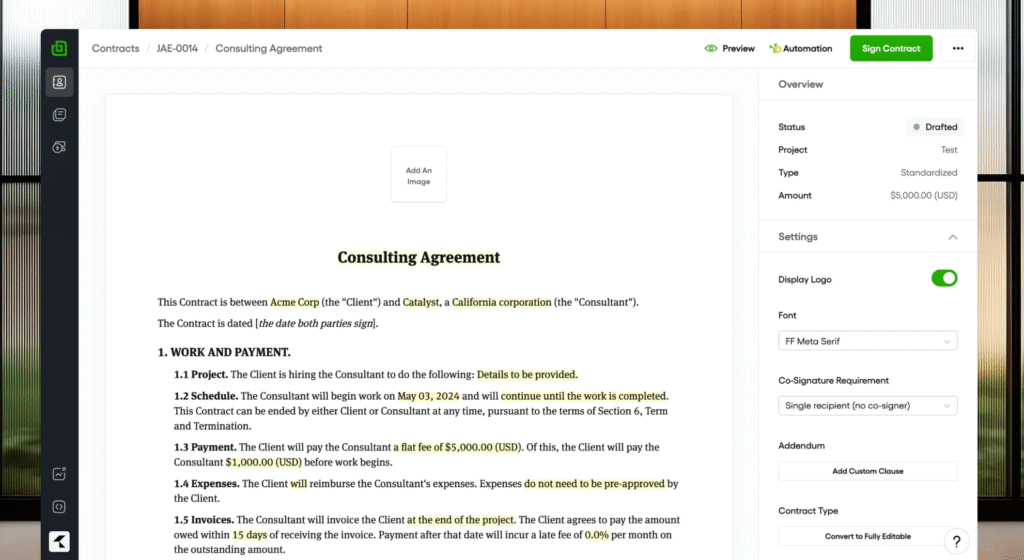When you first start freelancing, marketing your services can feel like a guessing game. Do you post on LinkedIn? Sign up for Upwork? Say yes to every new client? Many freelancers jump in headfirst without a plan, only to realise later they’ve been making the same common mistakes freelancers make.
According to Payoneer’s Freelancer Income Report, finding new clients is consistently ranked as the top challenge of freelancers. And honestly, a lot of that struggle starts with how you pitch, price, and present yourself to potential clients.
We’ve pulled together 10 common freelancing mistakes we see all the time, plus how to fix them so you can market your freelance business with more confidence.
The biggest mistake freelancers make is undervaluing their skills. New freelancers often feel they need to set an hourly rate far lower than their worth just to win projects. But charging too little sets the wrong tone and makes it harder to raise your rates later.
Read our full guide on how to set freelance rates to calculate what you should really be charging.
A lot of freelancers believe saying yes to every new project is the safest way to grow. The truth is, it quickly leads to burnout, scope creep, and working with clients who aren’t a fit.
Instead, define your ideal client and service offering. Saying no frees you up to focus on the right opportunities and build long-term relationships.
Many freelancers send the same copy-and-paste pitch to prospective clients. Potential clients can spot this from a mile away. It feels impersonal and forgettable.
Take time to research the business, mention something specific about their work, and link your skills to their needs. That extra effort can double your conversion rate.
Starting work without a written agreement is a surefire way to end up with unpaid invoices or scope disputes. It is one of the most common mistakes freelancers make.
Always sign a contract before starting any freelance project. It sets expectations, protects you if something goes wrong, and makes your freelance business look more professional.
You can create professional contracts in minutes using Bonsai.

From copywriting to web design to virtual assistants, many freelancers market themselves as if they can do everything. But generalists struggle to stand out.
Specialisation is what gets you noticed. A web designer who focuses on Shopify stores, or a freelance writer who only does SaaS content, will win more work than someone who “does it all.”
A lot of mistakes freelancers make is spending all their time chasing new clients, when the real gold is in your current projects. Former clients are often the easiest to sell new services to or ask for referrals.
Set aside time each month to check in with past clients. Even a simple “How’s everything going?” email can open up new projects or introductions.
Some freelancers rely only on platforms like Upwork to find clients. While freelance marketplaces can help you gain experience, they also drive prices down and don’t build your long-term reputation.
Successful freelancers set aside time each week to market themselves directly, whether that’s being active on social media, starting a blog, or networking with potential clients. If you want to grow your freelance career, don’t put all your eggs in the Upwork basket.
Our Toolbox has plenty of marketing and business tools to help you run smoothly and stay consistent.
The ability to sell your services isn’t just about pitching, it’s also about asking clients the right questions before starting work. Many freelancing mistakes come down to not clarifying scope, deadlines, or payment terms upfront.
Check out our blog on questions freelancers should ask clients for a list you can use on your next call.
One-person businesses need tools that save time. Yet new freelancers often underestimate how much admin eats into their day. Sending invoices, tracking hours, and storing files on Google Drive can quickly get messy.
We recommend Capsule to manage client relationships and keep your projects on track, and Full Scope if you want an all-in-one business platform. Both are great investments that save money in the long run.
You’ll also find more recommendations in our small business toolkit.
The final mistake freelancers make is focusing so much on client work that they forget to market themselves. Without a steady pipeline, you’re left scrambling for new projects once current clients slow down.
Set aside time each week to post on social media, update your portfolio, or email prospective clients. Think of it as an essential part of your freelance journey, because it is.
Making mistakes as a freelancer is part of the journey. What matters is learning from them quickly and putting systems in place so they don’t happen again.
Whether it’s charging what you’re worth, pitching smarter, or setting up better client processes, small changes now can mean more money, less stress, and a successful freelance career in the long run.
If you want to avoid these mistakes freelancers make and you’re ready to get your freelance business running smoothly, take a look at our Toolbox for the tools and resources we recommend.
